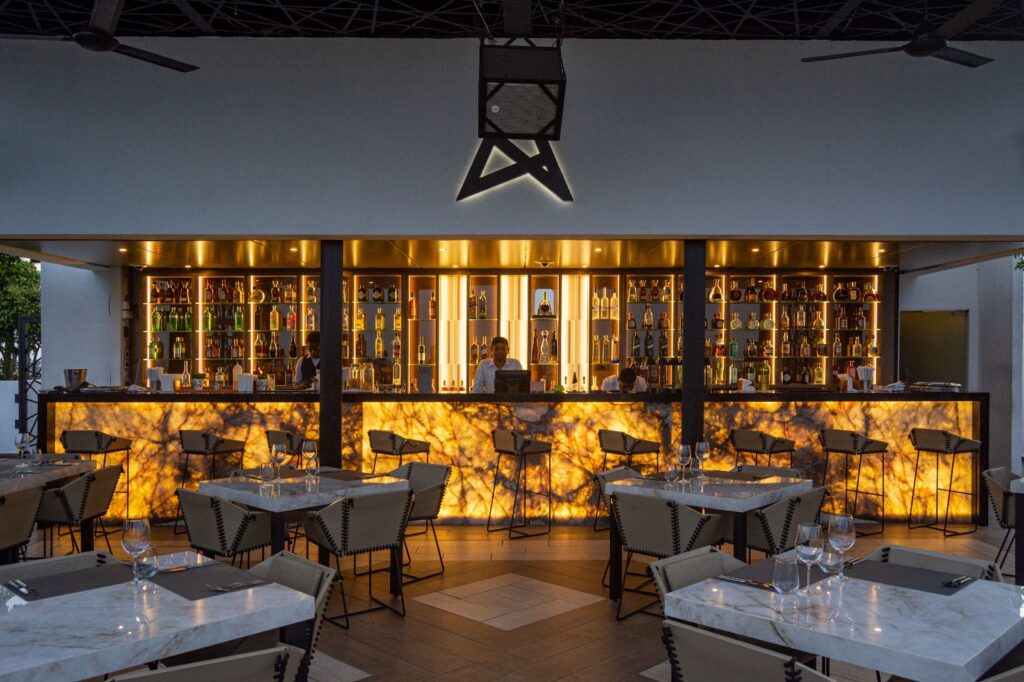From Northwest London to Ghana’s capital, Theo Obeng Sackey pairs British rigor with West African context to design buildings that feel calm, durable, and unmistakably local.
When architects talk about home, they usually mean a style.
For Theo Obeng Sackey, home is a climate, a street, and a set of habits that carry across continents.
He grew up between Northwest London and Accra, a childhood that taught him to read a city by its shade and its thresholds.
Training in the United Kingdom gave him the discipline todraw clearly and build responsibly. Returning to Ghana sharpened his sense that buildings should be measured by comfort and longevity, not spectacle.
Obeng Sackey is the founder and lead designer of Symbolic Spaces, an Accra-based studio working across residential, hospitality, and mixed-use projects.
He is qualified as an architect in both the UK and Ghana, and he runs the practice with a simple promise: “Every project starts with a clear narrative we see through to the end—one our clients can love and live with. It’s this approach that’s defined our studio’s reputation for thoughtful, understated work in a city racing ahead under a warming sky.”
A practice grounded in two systems
The London years left a mark. The office favors clear drawings, tidy sections, and early mock-ups that clients can touch. Solar orientation and cross ventilation are considered before facade language. Materials are judged by feel and lifespan as much as by cost. In Accra, those rules meet the realities of supply chains, craft traditions, and the social life of rooms.
Carpenters, metalworkers, and stonecutters are invited into the process while details are still flexible. The result is not minimalism for its own sake. It is clarity that protects budgets and improves the odds of a good building.
SkyBar 25, revised for today’s Accra
If the studio has a calling card, it is SkyBar 25, the members-only rooftop venue perched on Alto Tower in the Villaggio Vista complex.
The concept dates back to 2016: a space that works for daytime meetings and turns lively at night, with views that carry across the capital. In 2024, the team returned to refresh the entrance sequence, lobbies, the main bar, and service areas.
The upgrades improved circulation and acoustics without diluting the bar’s identity. Stone, timber, and backlit onyx add warmth, while service routes are shorter and cleaner.
The effect is less showy and more confident, which is the point.
Housing that treats climate as a first cost
The studio’s current residential work centers on a climate-responsive housing typology in the hills outside Accra. Plans are compact.
A taller central volume draws air and drops light deeper into rooms. Openings are paired so breezes feel predictable.
Facades favor pigmented clay and timber for cooler walls and easier maintenance. None of this is nostalgic. It is a practical design that uses vernacular intelligence to reduce energy loads and give families a better experience in their homes.
Downtown, a mixed-use study treats the ground floor as a public promise. Apartments share frontage with small galleries and coffee rooms so daily life meets culture at the curb.
Parking exists without dominating the first impression. The ambition is a street that feels safe and social through design, not through heavy policing.
Why London should pay attention
There is a London story here, and it runs deeper than biography. As Britain wrestles with the costs of retrofitting old stock and building new homes that work in warmer summers, practices like Symbolic Spaces model a kind of frugality that does not feel mean.
Deep shade, honest air paths, and maintainable assemblies do not read as austerity. They read with care. The studio’s work is not chasing a signature silhouette. It is chasing reliability. In an age of climate anxiety, that counts as beauty.
What comes next
Symbolic Spaces continues hospitality commissions in Accra while advancing a housing prototype in the Eastern region and a downtown mixed-use development.
The team is also consulting on a new steel-frame hotel by an international brand in the capital, and building a beachfront residence in the Central Region.
There is also development on a first commission in Nigeria. The through line is steady: listen to place, respect craft, and leave a street a little more generous than you found it.
By Baffour Anim


